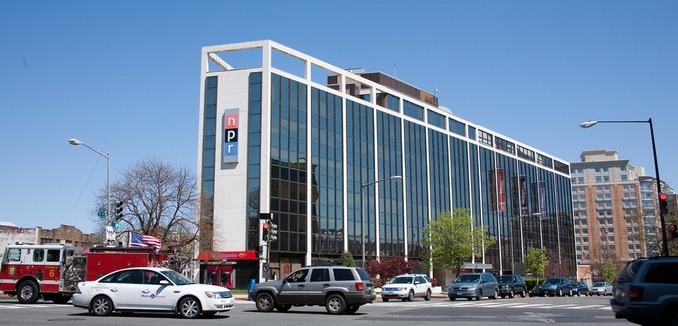A foundation recently identified by the White House as a key player in its effort to sell last year’s nuclear deal with Iran gave a number of news organizations, including National Public Radio, funds to report on the accord and related matters, the Associated Press reported Friday. The report comes in the wake of revelations that the Obama administration lied in order to secure the nuclear agreement, which has renewed scrutiny of the tactics employed by the White House and its allies to prevent a Senate vote on the deal.
The Ploughshares Fund gave NPR $700,000 since 2005 to report on national security matters, with all grants it issued to the radio network since 2010 specifically mentioning Iran, according to the AP. While foundations often fund news organizations, Ploughshares’ funding is “unusual” given its prominent role in advocating for the deal, the AP added.
Rep. Mike Pompeo (R – Kan.), a critic of the deal, called the reported links between Ploughshares and the media “tremendously troubling.” He said that he had often asked to appear on NPR opposite Rep. Adam Schiff (D – Calif.), a supporter of the deal, but was refused. NPR responded that it had featured prominent Republicans speaking about the deal and had no record of Pompeo’s requests.
The AP further noted that NPR twice featured Joseph Cirincione, president of Ploughshares, but only once acknowledged the support it received from his organization.
Ploughshares insisted that there was nothing unusual about the funding it gave NPR, saying it “does not influence the editorial content of their coverage in any way, nor would we want it to.” NPR also said that it has “a rigorous editorial firewall process in place to ensure our coverage is independent and is not influenced by funders or special interests.”
However Cirincone, in a statement following the nuclear agreement, boasted that “groups and individuals were decisive in the battle for public opinion and as independent validators… they lacked a common platform – a network to exchange information and coordinate efforts. Ploughshares Fund provided that network… we built a network of over 85 organizations and 200 individuals… We credit this model of philanthropy – facilitating collective action through high-impact grantmaking – with creating the conditions necessary for supporters of the Iran agreement to beat the political odds.”
According to a “Cultural Strategy Report” on its website, Ploughshares sought to ensure “regular and accurate coverage of nuclear issues” in outlets including The Guardian, Salon, the Huffington Post, and Pro Publica. Other efforts to generate coverage included funding reporters at The Nation and Mother Jones.
Ploughshares also funded think tanks including the Brookings Institution, the Arms Control Association, and the Atlantic Council. Experts from the Arms Control Association were frequently cited in the news with no mention of the link between them and Ploughshares.
Advocacy groups such as J-Street and the National Iranian American Council (NIAC) also received funding from Ploughshares. NIAC has been accused of functioning as a lobby for Iran in the United States.
In December, the Institute for Science and International Security faced a backlash by members of the arms control community for asserting that the International Atomic Energy Agency’s investigation into Iran’s nuclear history failed to address fundamental questions about its nuclear program. In response, the institute said too many deal supporters were just “PR flacks for the administration.”
In January 2014, The Tower fact-checked the assertions of a Ploughshares funded organization.
[Photo: Cliff / Flickr ]




